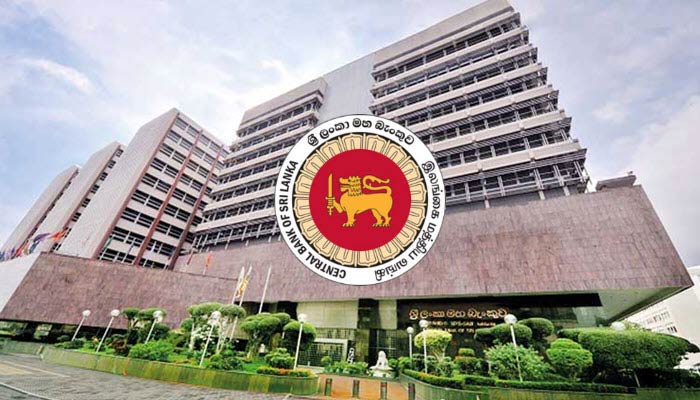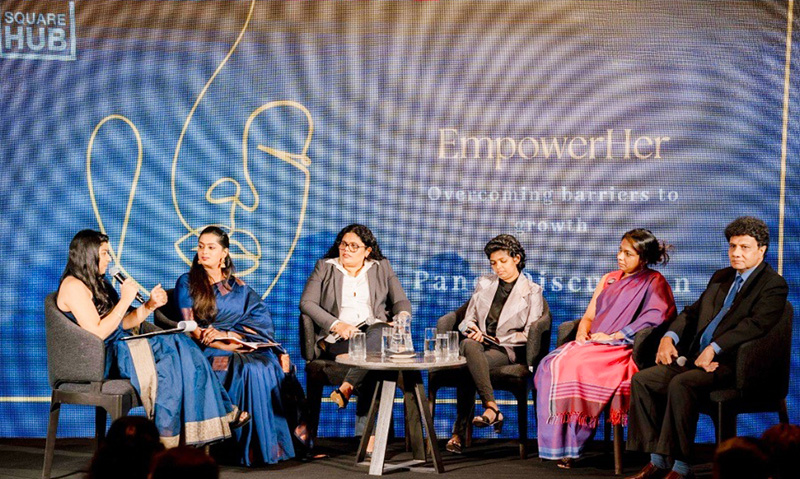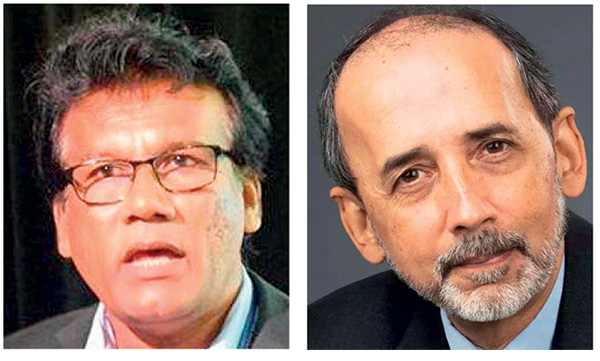Business
Robust structural reforms and macroeconomic stability seen as vital to ensuring FDI inflows

By Ifham Nizam
The National People’s Power (NPP) government to enhance Foreign Direct Investment inflows, must continue to implement robust structural reforms, maintain macroeconomic stability and address vulnerabilities in the financial sector, senior Chartered Accountant Heshana Kuruppu said.
Kuruppu, who is the President of CA Sri Lanka and President of the South Asian Federation of Accountants, speaking to The Island Financial Review stressed that consistent and transparent policies, along with efforts to improve infrastructure and reduce bureaucratic hurdles, will be essential in rebuilding investor confidence and fostering a conducive environment for long-term investments.
Extracts from the interview;
Q: How do you perceive the new government’s economic initiatives in terms of their potential impact on local businesses?
A: NPP’s current proposal is for an interim government until parliamentary elections occur. Thus, it’s uncertain if they will implement major initiatives outlined in their policy framework. A new budget must be presented to parliament for any significant changes, which won’t happen with the existing parliament. Consequently, it’s too soon to assess the impact on local business.
Q: Which sectors do you think will benefit the most from these initiatives, and which ones might face challenges?
A: As highlighted above, it is too early to comment on the sectors going to have an effect. However as per the policy statement NPP has identified several priority sectors, such as, ICT, Fisheries, Construction, Agriculture, Tourism, Creative sectors (Art, Cinema, Music) etc.
Q: How prepared are businesses in Sri Lanka to adapt to these new policies?
A: Sri Lankan businesses seek consistent policies, whether fiscal, investment or labor-related. Despite past inconsistencies, the private sector has significantly contributed to economic growth. Consistency could have unlocked greater potential. Political parties need to support this now and the NPP appears to share this view, having promised private sector-friendly policies.
Q: How will these initiatives influence tax policies and what are your expectations regarding changes in corporate taxes?
A: Following the crisis, low and middle-income earners faced significant challenges. Their disposable income decreased due to taxes and the cost of living rose markedly. Despite low inflation, high living costs persist since incomes haven’t adjusted accordingly. The election results clearly show their dissatisfaction.
The incoming President and new administration will face the challenge of addressing these needs. To satisfy this segment, taxes need to be reduced, safety nets increased, or both. However, these actions should not strain the government budget as borrowing is not an option.
Conversely, achieving a sustainable solution in the mid to long term relies on real GDP growth. However, this requires a boost in capital expenditure. Yet, raising capital expenditure might result in a budget deficit.
Therefore, a careful strategy is needed to manage these conflicting demands. I don’t anticipate significant changes in corporate taxes in the near future.
Q: What is your opinion on the new President’s focus on the promotion of entrepreneurship and innovation in the business sector?
A: Key initiatives of the entrepreneurship policy include creating strategic think tanks, introducing tailored taxation frameworks and enhancing investment protection legislation. The policy emphasizes supporting micro, small, and medium-sized enterprises (MSMEs) through specialized divisions, collateral-free loans and cooperative business models.
Additionally, it focuses on optimizing industrial zones, adopting sustainable practices and leveraging digital technology to drive innovation and market efficiency. The overarching goal is to create a conducive environment for entrepreneurship, ensuring affordable infrastructure and transparent market operations.
These are all good initiatives. Historically, many promising proposals appear in election policy statements and sometimes in budget plans, but very few are actually implemented. Let’s hope this time is different.
Q: Do you think the new policies are sufficient to attract foreign direct investment (FDI)? Why or why not?
A: Regardless of whether policies are new or existing, their consistency is what truly matters.
Maintaining consistent policies is vital for drawing and keeping FDI. Predictable regulations, lower risks tied to sudden changes, aiding long-term investment planning are important. Conversely, inconsistent policies can deter investors by creating uncertainty and unexpected costs. Frequent alterations in tax laws, labor rules or trade policies can lead to an unstable business climate, deterring foreign investors.
In addition, economic and political stability is crucial for attracting Foreign Direct Investment (FDI), as it provides a predictable environment for investors. Sri Lanka’s recent economic challenges, including high inflation, currency depreciation and a significant debt burden, have created a complex landscape for potential investors. However, the country is showing signs of stabilization, with moderate growth projected at 2%-3% in 2024.
Business
Relief measures to assist affected Small and Medium Enterprises

As agreed with the Sri Lanka Banks’ Association (Guarantee) Ltd. (SLBA), to provide relief measures to affected SMEs by licensed commercial banks and licensed specialised banks, Circular No. 04 of 2024 dated 19.12.2024, and its addendum, Circular No. 01 of 2025 dated 01.01.2025 were issued by the Central Bank of Sri Lanka to ensure the effective implementation of the relief measures specified in the cited Circulars in a consistent manner across all licensed banks.
In case of any rejections or disputes, borrowers are requested to contact the respective banks and to appeal to the Director, Financial Consumer Relations Department of CBSL (FCRD), if required through the following channels:
Based on the repayment capacity and the submission of an acceptable business revival plan by the borrower, the relief measures extended to affected SMEs include rescheduling of credit facilities up to a period of 10 years, extending the time to commence repayments based on the capital outstanding, waiving off unpaid interest subject to conditions, and providing new working capital loans. Despite the availability of the above relief measures, limited number of borrowers had approached licensed banks to avail themselves of these benefits to date.
In addition to the above measures, with the gradual recovery of the economy, in order to facilitate the sustainable revival of businesses that were adversely affected during the recent past, several other measures were taken by CBSL together with the banking industry.
Accordingly, inter alia, strengthening the Post Covid 19 revival units of licensed banks, CBSL issued Circular No. 02 of 2024 dated 28.03.2024 on “Guidelines for the Establishment of Business Revival Units of Licensed Banks” mandating banks to establish Business Revival Units (BRUs) to assist viable businesses that are facing financial and operational difficulties.
Under BRUs, banks may provide support to viable businesses, such as restructuring and rescheduling of credit facilities including the adjustment of interest rates, maturity extensions, providing interim financing, advisory services etc., subject to the condition that such borrowers are required to submit acceptable business plans and feasible repayment plans. As reported by banks, by the end of 2024, around 6,000 facilities had been facilitated through these BRUs.
The above cited Circulars and Guidelines can be accessed via https://www.cbsl.gov.lk
Business
Visa commits to support women entrepreneurs in Sri Lanka

Visa (NYSE: V), the global leader in digital payments reiterated its support to women entrepreneurs across Sri Lanka as a part of its International Women’s Month celebrations across the world, by stating a firm commitment towards financial inclusion and digitization of women-led businesses, and hosted women from different walks of life in a specially curated event at Colombo.
Avanthi Colombage, Country Manager for Visa in Sri Lanka and Maldives stated, “At Visa, we believe in being the best way to pay and be paid by uplifting everyone, everywhere. This year, we celebrated International Women’s Month to support the very capable businesswomen in our country, with an event titled ‘Overcoming Barriers to Growth’ along with Square Hub, an incubator and business accelerator.”
The event by Visa brought together 35 upcoming women entrepreneurs across various sectors, including fashion, e-commerce, fintech, technology, manufacturing, and agriculture. While prominent industry experts shared views, learnings and experiences from their own journeys, the event also facilitated open discussions and networking among entrepreneurs, on how they can build and sustain thriving businesses.
Avanthi elaborates that Visa has built a firm foundation in supporting female entrepreneurship and the empowerment of women in Sri Lanka and understands the challenges women-owned businesses face when seeking capital, access, networks and guidance and continues to actively uplift women in Sri Lanka. Globally and in Sri Lanka, Visa believes that the participation of women is key to the growth of an economy. Avanthi adds, “Two years ago, when we celebrated 35 years of Visa in Sri Lanka, we announced a grant for The Asia Foundation to assist women-led small and medium businesses (SMBs) throughout the country. This initiative offered vital seed funding, skills training, and financial inclusion opportunities for women entrepreneurs, helping remove some major barriers to their success,” she recalled.
Business
Environmentalists renew concerns over Adani Group’s proposed Mannar wind power project

Environmental groups, including the Wildlife and Nature Protection Society (WNPS), the Centre for Environmental Justice (CEJ) and the Environmental Foundation Ltd. (EFL), are raising renewed concerns about the potential ecological impact of large-scale wind energy development on Mannar Island. Conservationists argue that the island, home to a unique and sensitive ecosystem, faces serious risks from industrial projects that may disrupt biodiversity and endanger local wildlife.
At the heart of the controversy is whether the environmental issues raised by Adani Group’s proposed wind energy project in Mannar were being adequately considered. Critics argue that tariff negotiations and economic interests overshadowed ecological assessments, potentially leading to a project that might compromise the island’s rich natural heritage.
“Can wind energy coexist with Mannar Island’s fragile ecosystem? asked environmental scientist Hemantha Withanage of the CEJ.
He told The Island Financial Review: “We must ensure that our transition to renewable energy does not come at the cost of irreplaceable biodiversity.”
Other conservationists have pointed out that environmentalists are often misrepresented as obstructionists in debates over development. “Are we being painted as enemies of progress, or is the public being misled about the real consequences of such projects? questioned Dr. Rohan Pethiyagoda, a leading environmental advocate.
With Adani’s possible withdrawal from the project, there is now an opportunity to reevaluate Sri Lanka’s approach to sustainable energy. Experts emphasize the need for a smarter, science-driven path that prioritizes both renewable energy and environmental conservation.
A joint media conference, scheduled for today at the Dutch Burgher Union, Colombo, aims to address these concerns. Organized by WNPS, CEJ, EFL and Pethiyagoda, the event will explore questions such as whether the project might resurface under a new guise and who the true beneficiaries of such large-scale energy initiatives are.
By Ifham Nizam
-

 Sports4 days ago
Sports4 days agoSri Lanka’s eternal search for the elusive all-rounder
-

 News3 days ago
News3 days agoBid to include genocide allegation against Sri Lanka in Canada’s school curriculum thwarted
-

 News5 days ago
News5 days agoGnanasara Thera urged to reveal masterminds behind Easter Sunday terror attacks
-

 Business6 days ago
Business6 days agoAIA Higher Education Scholarships Programme celebrating 30-year journey
-

 News4 days ago
News4 days agoComBank crowned Global Finance Best SME Bank in Sri Lanka for 3rd successive year
-

 Features4 days ago
Features4 days agoSanctions by The Unpunished
-

 Latest News2 days ago
Latest News2 days agoIPL 2025: Rookies Ashwani and Rickelton lead Mumbai Indians to first win
-

 Features4 days ago
Features4 days agoMore parliamentary giants I was privileged to know











